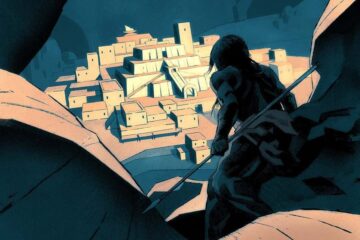Michael Marshall in New Scientist:
 For almost all of human existence, our species has been roaming the planet, living in small groups, hunting and gathering, moving to new areas when the climate was favourable, retreating when it turned nasty. For hundreds of thousands of years, our ancestors used fire to cook and warm themselves. They made tools, shelters, clothing and jewellery – although their possessions were limited to what they could carry. They occasionally came across other hominins, like Neanderthals, and sometimes had sex with them. Across vast swathes of time, history played out, unrecorded.
For almost all of human existence, our species has been roaming the planet, living in small groups, hunting and gathering, moving to new areas when the climate was favourable, retreating when it turned nasty. For hundreds of thousands of years, our ancestors used fire to cook and warm themselves. They made tools, shelters, clothing and jewellery – although their possessions were limited to what they could carry. They occasionally came across other hominins, like Neanderthals, and sometimes had sex with them. Across vast swathes of time, history played out, unrecorded.
Then, about 10,000 years ago, everything began to change.
In a few places, people started growing crops. They spent more time in the same spot. They built villages and towns. Various unsung geniuses invented writing, money, the wheel and gunpowder. Within just a few thousand years – the blink of an eye in evolutionary time – cities, empires and factories mushroomed all over the world. Today, Earth is surrounded by orbiting satellites and criss-crossed by internet cables. Nothing else like this has ever happened.
Archaeologists and anthropologists have sought to explain why this rapid and extraordinary transformation occurred.
More here.
